#fintech mobile app development
Explore tagged Tumblr posts
Text
#fintech software development#fintech app development company#fintech app development services#fintech mobile app development
0 notes
Text
Fintech App Development: In-Depth Overview
Companies can create secure software solutions for managing financial operations by harnessing cutting-edge technology and security best practices for FinTech mobile app development. You can create different types of apps by using fintech app development services to target wide audiences and purposes. If you want to seize this opportunity and create a reliable fintech solution specifically for your business, get in touch with Protonshub Technologies, a renowned finance app development company in the USA. Our team can assist you in creating a profitable fintech application that will address your company's problems and provide your customers with a fantastic experience.
#fintech app development companies#fintech app development services#finance app development company in usa#fintech mobile app development
0 notes
Text
Exploring The Latest Trends In Fintech App Development
Whether you're looking to transfer funds seamlessly, invest in stocks at your fingertips, or simply track your expenses effortlessly, fintech apps have revolutionized the way we handle our finances.
“With an array of features and functionalities tailored to suit individual needs, these apps bring personalized financial management right into the palms of our hands. However, fintech mobile app development has made an entry to assist businesses and individuals.”
1. What are fintech apps?
Fintech apps, short for financial technology applications, are revolutionizing the way we manage our finances. These apps leverage cutting-edge technology to provide users with seamless and convenient access to a wide range of financial services. One key aspect of fintech apps is their ability to offer personalized solutions tailored to individual user needs.
Whether it's budgeting, investment management, or payments, these apps provide features that allow users to track their expenses, set financial goals, and make informed decisions about their money. Another important feature of fintech development is their focus on security. With the increasing prevalence of cyber threats in today's digital landscape, protecting sensitive financial information has become paramount. Fintech apps employ advanced encryption techniques and multi-factor authentication protocols to ensure that user data remains secure at all times. Moreover, fintech apps are also incorporating artificial intelligence (AI) capabilities into their platforms. AI-powered chatbots can now assist users in real-time by providing answers to common queries or helping them navigate through complex financial processes. Additionally, fintech app developer like me are constantly exploring innovative ways to integrate blockchain technology into their platforms.
Blockchain offers enhanced transparency and security for transactions while reducing costs and eliminating intermediaries.
Fintech apps have transformed the way individuals interact with finance by offering personalized solutions with robust security measures.
As these technologies continue to evolve rapidly, the potential for further advancements in this field is vast.
2. Why develop a fintech app?
The world of finance is constantly evolving, and with the rise of technology, there is a growing demand for fintech apps. But why should you consider developing a fintech app? Well, let's explore some compelling reasons. A fintech app provides convenience and accessibility to users. With just a few taps on their smartphones, users can easily access financial services such as banking, investing or even budgeting. This ease of use attracts customers who are always on the go and prefer digital solutions.
Developing a fintech app allows businesses to streamline their operations and reduce costs. By integrating various financial processes into one platform, companies can automate tasks that were previously time-consuming and error-prone. This leads to increased efficiency and ultimately saves money in the long run.
Furthermore, a well-designed fintech app can enhance customer engagement and loyalty. Through personalized experiences tailored to individual needs, users feel valued by the company offering the app. Additionally, features like real-time notifications or alerts keep users informed about their finances at all times. In addition to these benefits for both customers and businesses alike, developing a fintech app opens up opportunities for innovation in the financial sector.
From peer-to-peer lending platforms to robo-advisors utilizing artificial intelligence algorithms - there are endless possibilities for creating unique solutions that cater specifically to user needs.
Conclusion
In today's fast-paced world, the importance of fintech app development cannot be underestimated. These innovative applications have revolutionized the way we manage our finances, making transactions faster and more convenient than ever before. As I explored the latest trends in fintech app development cost, it became clear that this industry is constantly evolving to meet the needs of consumers. One trend that has gained significant traction is biometric authentication. With increasing concerns about security and privacy, many fintech apps now offer features such as fingerprint or facial recognition to ensure secure access to financial information. This not only enhances user experience but also provides an extra layer of protection against unauthorized access. Another trend I uncovered is the rise of robo-advisors in fintech app development. These automated investment platforms use algorithms to analyze market data and provide personalized investment advice to users.
By leveraging artificial intelligence and machine learning technology, robo-advisors are able to make informed decisions based on a user's risk tolerance and financial goals. Furthermore, blockchain technology has also made its mark in the fintech industry. The decentralized nature of blockchain ensures transparency and immutability in financial transactions, eliminating middlemen and reducing costs for users. Fintech apps utilizing blockchain can enable peer-to-peer payments, smart contracts, and even tokenization of assets. Open banking APIs have emerged as a key trend in recent years. Open banking allows third-party developers to build applications that can securely access a user's banking data with their consent.
This enables seamless integration between different financial services within a single app, providing users with a holistic view of their finances.
#fintech app development#fintech development#fintech app developer#fintech app development cost#fintech mobile app development
0 notes
Text
India's No.1 One Stop Solution Provider For Money Transfer, Aadhar Pay,AEPS, mPos & Mini ATM, Account opening,Neo banking, Service Provider of , Enterprise, B2B, White Label Software, visit: www.rrfinpay.com
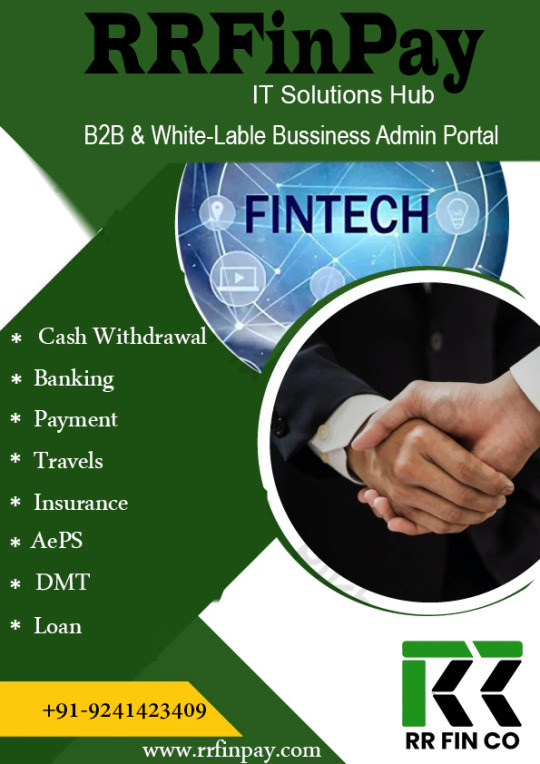
#fintech service#it company#software company#app development company#b2b lead generation#white label agency#white label solution#rrfinpay#rrfinco#dmt software#recharge software#loan service#travel Service#e-government services#dth recharge#mobile recharge#bill payment#adhar pay#payment getaway#Qr/UPI Services#gst Services#Uti pan
2 notes
·
View notes
Text
P2P PAYMENT APP DEVELOPMENT 2024 : A COMPREHENSIVE GUIDE
Solution about,
custom blockchain development company
fintech app development company
digital wallet app development company
Our Other Blogs, Highen Fintech Blogs
#p2p payment app development#fintech app development#fintech mobile app#blockchain architecture#custom blockchain solutions#fintech development#p2p payments app#payment app development#custom software fintech#digital wallet#digital wallet app development#techfin#blockchain technology#blockchain#lending software development company#technology#fintech#blog
2 notes
·
View notes
Photo

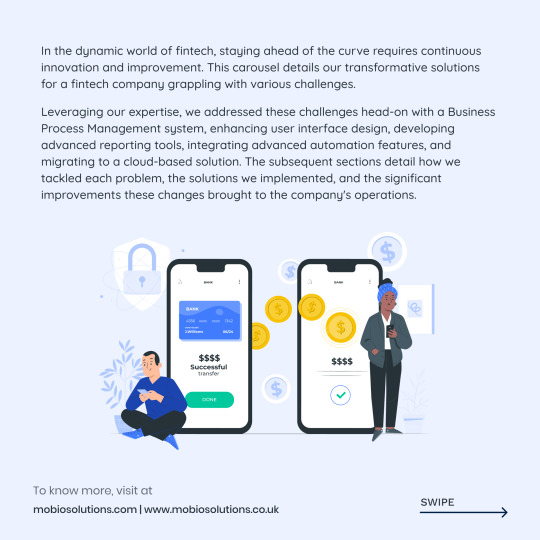
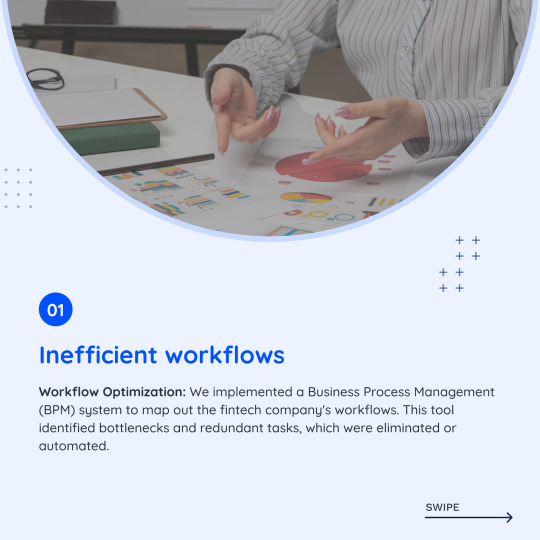
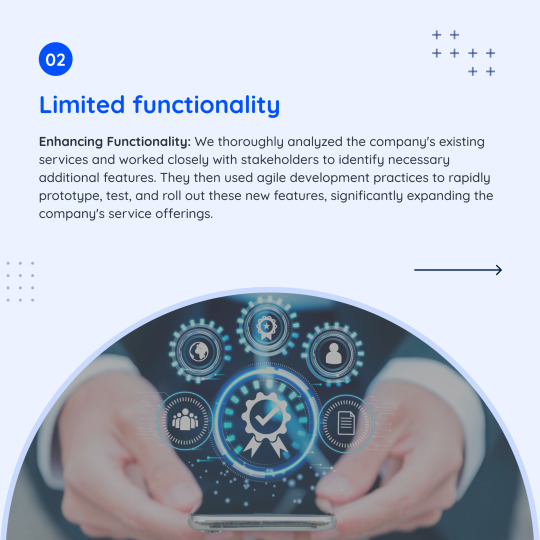
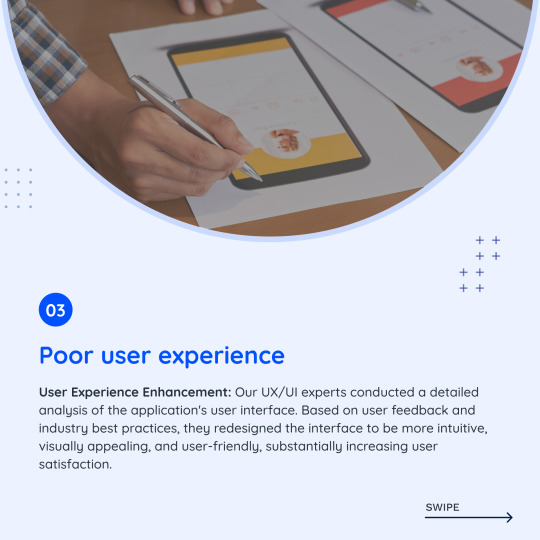
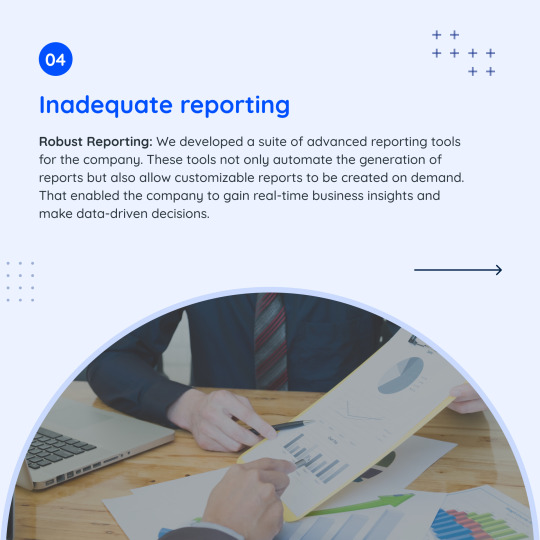
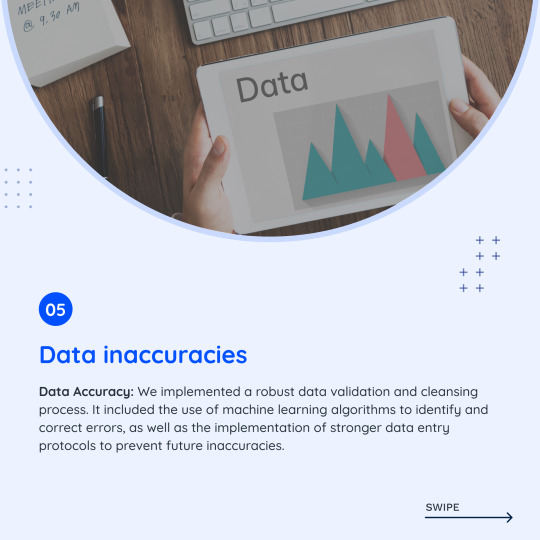
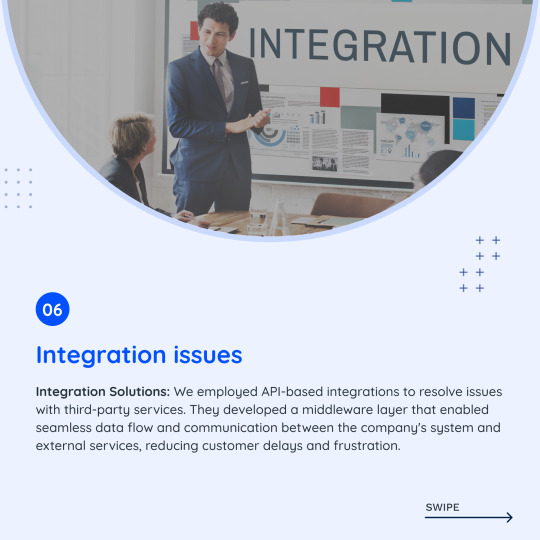
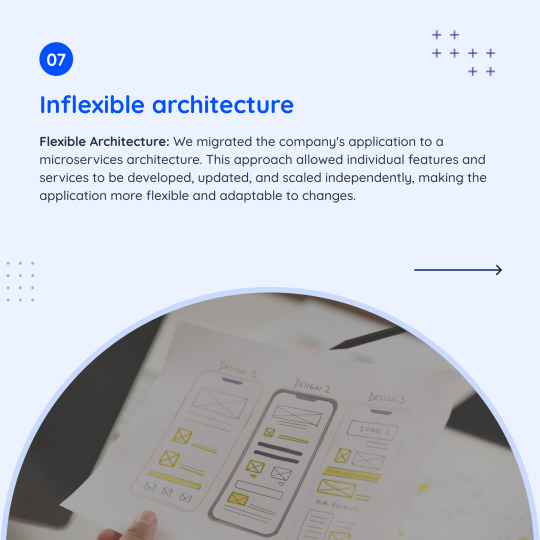

MobioSolutions team of industry experts uses advanced technology and deep domain knowledge to provide smooth, secure, and efficient Fintech solutions. Whether it's integrating robust security protocols, ensuring seamless transaction processes, or driving innovative, user-friendly features, we're on the frontline of transforming financial technology. Join us on this exciting journey and learn how we're paving the way for a better Fintech future.
#finance#fintech#FinServ#financialservices#mobile#web#app#development#fintechindustry#security#technology#future#mobiosolutions#uk
10 notes
·
View notes
Text
Leaping into the exciting world of Fintech? Then you need the best allies in your journey. Choosing the right FinTech app development company can make or break your venture. Dive into our latest blog post to learn how to make an informed decision. Let's collaboratively unleash the power of innovation in fintech.
Navigate the complex world of Fintech with confidence!
#fintech#fintechstartup#fintech app development#appdevelopment#technology#mobile app development#softwaredevelopment#fintech industry#fintech solutions#businesstechnology#mobio solutions
4 notes
·
View notes
Text
The Future is FinTech: Exciting App Ideas for Startups & Businesses

The financial technology (FinTech) landscape is booming, revolutionizing how we manage, invest, and interact with money. For startups and established businesses alike, this presents a fertile ground for innovation. The demand for user-friendly, efficient, and secure financial solutions is constantly growing, opening up a plethora of opportunities to create impactful and profitable FinTech apps.
But with so much potential, where do you even begin? This blog post dives into some of the most promising FinTech app ideas that are ripe for disruption and offer significant value to users.
1. AI-Powered Personal Finance Assistant:
Imagine an app that goes beyond basic budgeting. An AI-powered personal finance assistant can analyze a user's income, expenses, and financial goals to provide personalized insights and recommendations.
Features:
Automated budgeting and expense tracking with smart categorization.
Predictive analysis of spending patterns and potential financial risks.
Personalized savings plans and investment suggestions based on risk tolerance and goals.
Bill negotiation and subscription management to optimize spending.
AI-powered chatbot for financial advice and support.
2. Hyper-Personalized Investment Platform:
Traditional investment platforms often offer a one-size-fits-all approach. A hyper-personalized investment app can cater to individual needs and preferences in a much more granular way.
Features:
Detailed risk profiling and goal-based investment planning.
Access to diverse investment options, including fractional shares, cryptocurrencies, and alternative assets.
Automated portfolio rebalancing based on individual risk tolerance and market conditions.
Personalized educational content and insights tailored to the user's investment knowledge.
Social features allowing users to learn from and discuss investment strategies (with appropriate safeguards).
3. Embedded Finance Solutions for Specific Niches:
Instead of creating standalone financial apps, consider embedding financial services directly into existing platforms or focusing on specific underserved niches.
Examples:
Freelancer Finance App: Integrated invoicing, payment processing, tax estimation, and expense tracking tailored for freelancers.
Small Business Cash Flow Management: Tools for forecasting cash flow, managing invoices, accessing short-term financing, and integrating with accounting software.
Gig Economy Worker App: Instant payment access, income smoothing tools, and benefits management designed for gig workers.
Healthcare Finance App: Streamlined bill payment, insurance claim tracking, and financing options for medical expenses.
4. Decentralized Finance (DeFi) Education and Access Platform:
The world of DeFi can be complex and intimidating for newcomers. An app that simplifies DeFi concepts and provides a user-friendly gateway to decentralized services has immense potential.
Features:
Simplified explanations of DeFi concepts like staking, lending, and yield farming.
Curated selection of secure and reputable DeFi protocols.
User-friendly interface for interacting with DeFi platforms.
Risk assessment tools and educational resources on DeFi risks.
Integration with secure cryptocurrency wallets.
5. Sustainable and Ethical Finance App:
With growing awareness of environmental and social issues, there's a demand for financial solutions that align with users' values.
Features:
Tools to track the environmental and social impact of investments.
Access to ESG (Environmental, Social, and Governance) focused investment options.
Carbon footprint tracking based on spending habits.
Opportunities to support sustainable businesses and initiatives.
Transparent reporting on the ethical practices of financial products.
6. Gamified Financial Literacy and Education App:
Making learning about finance fun and engaging can significantly improve financial literacy, especially among younger generations.
Features:
Interactive quizzes and challenges on various financial topics.
Simulations and virtual trading platforms to practice investment strategies.
Reward systems and gamified progress tracking.
Personalized learning paths based on knowledge gaps.
Integration with real-world financial tasks to reinforce learning.
Key Considerations for Success:
No matter which FinTech app idea you pursue, certain factors are crucial for success:
Strong Security: Robust security measures are paramount to protect users' sensitive financial data.
User-Centric Design: The app should be intuitive, easy to navigate, and provide a seamless user experience.
Regulatory Compliance: Navigating the complex financial regulations is essential.
Clear Value Proposition: The app must solve a genuine problem or offer a significant improvement over existing solutions.
Scalability: The app's architecture should be able to handle a growing user base.
Conclusion:
The FinTech revolution is far from over. By identifying unmet needs and leveraging emerging technologies like AI, blockchain, and personalization, startups and businesses can create innovative and impactful FinTech apps that shape the future of finance. The ideas outlined above are just a starting point – the key is to identify a specific problem, understand your target audience, and build a solution that truly adds value to their financial lives. The time to innovate in FinTech is now!
#mobile app development company in sydney#mobile app developer in sydney#app development company in sydney#app developer in sydney#mobile app developers in sydney#The Future is FinTech: Exciting App Ideas for Startups & Businesses
0 notes
Text
Custom Mobile App Development Company | Scalable & Secure Solutions
Custom Mobile App Development – Build Scalable & Future-Ready Solutions
In today’s fast-paced digital world, businesses require tailored mobile applications to meet unique operational needs and enhance customer engagement. Custom mobile app development ensures that businesses get applications specifically designed to match their goals, industry standards, and user expectations. Whether you're a startup or an enterprise, having a customized mobile app can significantly boost your efficiency and revenue.

Why Choose Custom Mobile App Development?
Unlike off-the-shelf applications, custom mobile app development provides:
Personalized Solutions – Designed to fit your business needs perfectly.
Enhanced Security – Custom-built apps offer robust security against cyber threats.
Scalability & Flexibility – Applications can evolve as your business grows.
Seamless Integration – Connects smoothly with existing business systems.
Better Performance – Optimized for faster speed and reliability.
Dinoustech Private Limited – Your Trusted Custom Mobile App Development Partner
At Dinoustech Private Limited, we specialize in developing feature-rich, scalable, and innovative mobile applications that help businesses stay ahead in the competitive market. With expertise in iOS, Android, and cross-platform development, our team ensures seamless user experiences with high-performing applications.
Our Custom Mobile App Development Services
Android & iOS App Development – Native apps for the best user experience.
Cross-Platform App Development – Flutter, React Native, and more.
E-Commerce & On-Demand Apps – Scalable solutions for online businesses.
Enterprise Mobility Solutions – Apps designed for corporate needs.
App UI/UX Design – Intuitive and engaging designs for better usability.
App Maintenance & Support – Continuous improvements and updates.
Industries We Serve
E-commerce & Retail
Healthcare & Telemedicine
Finance & Fintech
Education & E-learning
Logistics & Transportation
Gaming & Entertainment
Why Choose Dinoustech for Custom Mobile App Development?
✅ Experienced Developers – 170+ successful projects completed.
✅ End-to-End Solutions – From ideation to deployment and beyond.
✅ Latest Technologies – AI, Blockchain, IoT, and Cloud integration.
✅ Affordable Pricing – Cost-effective solutions without compromising quality.
✅ Dedicated Support – 24/7 assistance and post-launch maintenance.
FAQs – Custom Mobile App Development
1. How long does it take to develop a custom mobile app? The development timeline depends on the app's complexity and features. On average, it takes 3-6 months to build a fully functional custom app.
2. How much does custom mobile app development cost? The cost varies based on the app’s features, design, and platform. Contact Dinoustech for a free quote tailored to your project needs.
3. Can you integrate third-party APIs into my app? Yes, we can seamlessly integrate third-party services like payment gateways, CRM, social media, and analytics tools into your mobile app.
4. Do you offer post-launch support and maintenance? Yes! We provide ongoing maintenance, updates, and bug fixes to ensure your app stays optimized and up to date.
5. Will my app be available on both Android and iOS? Absolutely! We develop native apps for Android & iOS, as well as cross-platform solutions for wider reach and better ROI.
Get Started with Custom Mobile App Development Today!
Looking for a reliable custom mobile app development company? Dinoustech Private Limited is here to turn your vision into reality. Let’s build a high-performing mobile app tailored to your business needs.
📍 Business Name: Dinoustech Private Limited 📍 Address: Jaipur, Rajasthan, India 📞 Phone: 9549581582 📧 Email: [email protected] 🌐 Website: https://www.Dinoustech.com
Other Services :-
Dating App Development Company in India
Custom Healthcare Software Development Company
Custom Grocery App Development Company
Fintech App Development Company in india
#Travel App Development Company in India#Fintech Software Development Company in india#Best Grocery App Development Company in India#Custom Dating App Development Company#mobile app development company in india
0 notes
Text

Stock Trading App by Code Regime Technologies – Grandeur Your Trading Experience! . . Are you ready to redefine stock trading with Next-Gen technology? Code Regime Technologies brings you an advanced Stock Trading App, designed for speed, security, and precision. Whether you're a beginner or a pro, our powerful platform ensures seamless execution, smart insights, and a smooth user experience across web & Gmail integration. . . 🌟 Key Features: 1. AI-Powered Trade Insights – Get real-time market predictions & trend analysis. 2. Automated Trading Bots – Execute trades automatically based on pre-set conditions. 3. Instant Buy/Sell Execution – Ultra-fast transactions with real-time price tracking. 4. Custom Watchlists & Alerts – Stay ahead with personalized notifications. 5. Secure & Encrypted Transactions – Industry-leading security for worry-free trading. 6. Multi-Platform Access – Trade seamlessly on web & receive trade alerts via Gmail. 7. Social Trading & Copy Trading – Follow expert traders & replicate their strategies. 8. Advanced Charting Tools – Make informed decisions with pro-level analytics. 9. Fractional Trading – Invest in high-value stocks with minimal capital. 10. Regulatory Compliance & KYC Automation – Fully secure onboarding & transactions. . . 🚀 Limited-Time March Offer – Fast-Track Your Trading Business! 🔹 Exclusive customizations & branding options 🔹 Faster deployment in just a few weeks 🔹 Special pricing & additional integrations for early sign-ups . . 📞 Let’s Build Your Future in Trading! This is your chance to launch a powerful trading app at lightning speed. Schedule a quick business call now and unlock premium benefits before March ends!
#wealthtech#fintech#mobile app development#custom mobile app development company#cloneappdevelopment#customappdevelopment#crypto#bitcoin#altcoin
1 note
·
View note
Text
Expert Web & Application Development Services – Build, Scale & Succeed
Looking for top-notch web and application development services? We create high-performing, user-friendly websites and mobile apps tailored to your business needs. From custom web design and eCommerce solutions to robust mobile apps and enterprise software, we deliver cutting-edge digital solutions that drive growth. Our expert developers ensure seamless performance, security, and scalability. Whether you're a startup or an enterprise, we help you turn ideas into reality with innovative technology. Get a powerful online presence today!

#Fintech Application Development#Healthcare App Development Services#Staff Augmentation Services#Mobile Application Development Solutions
0 notes
Text

https://rrfinco.com/ RRFINCO is one of the Best mobile game development Service Providers, crafting incredible mobile games for IOS and Android. From concept to launch, we manage every step, ensuring top-notch quality.
#rrfinco#rrfinpay#fintech#fintechservice#FintechSolutions#gamedevelopment#gamedeveloper#gamedevelopmentservices#gamedevelopmentcompany#Mobilegameplay#MobileGameDevelopment
#dmt software#loan service#gst services#recharge software#aeps software#api integration#b2b service#api solution#b2c services#account opening#mobile app design bd#mobile app development#accounting#best aeps service provider#bill payment#fintech app development company#app development company#distributor#e government services#education#ecommerce#entrepreneur#fintech service#fintech company#fintech industry#fintech software#mutual fund#gamming software#payment getway#payment getaway
0 notes
Text
TOP BLOCKCHAIN TRENDS FOR 2024
Solution about,
custom blockchain development company
fintech app development company
digital wallet app development company
Our Other Blogs, Highen Fintech Blogs
#blockchain trends#blockchain#fintech#fintech app development#lending software development company#digitalcurrency#digital wallet app development#mobile app development#technology#application#software#blockchain technology#trends#2024#blog
2 notes
·
View notes
Photo








Secure, User-Friendly, and Scalable - the pillars of our advanced mobile app development capabilities designed to reform your fintech business. We're experts in creating robust apps that secure your financial transactions and offer a superior user experience. Let's collaborate to create a custom solution that drives growth and strengthens your position in the fintech market. For more, visit our official website!
#fintech#mobile app development#mobileapps#securemobileapps#userexperience#UXdesign#Business#fintechstartups#fintechapp#mobiosolutions
3 notes
·
View notes
Text
Best Ecommerce Solutions for Startups and Retail Businesses in Vavuniya
In today’s digital world, having a strong online presence is essential for any business looking to grow. Whether you're a startup or a retail store in Vavuniya, the right ecommerce solution can help you reach more customers, increase sales, and streamline operations.
If you're looking for a complete ecommerce solution in Vavuniya, partnering with an expert ecommerce solution provider ensures a hassle-free setup and smooth management of your online store.
Why Choose an Ecommerce Solution for Your Business?
Setting up an online store involves more than just creating a website. A complete ecommerce business solution in Vavuniya includes everything from website development to secure payment gateways and order management systems. Here’s why businesses in Vavuniya are shifting towards ecommerce:
Wider Customer Reach: Sell beyond local markets and attract customers from different regions.
24/7 Availability: Unlike physical stores, an ecommerce website allows customers to shop anytime, increasing sales opportunities.
Cost-Effective Operations: Reduce overhead costs and automate processes like inventory management and customer support.
Seamless Customer Experience: A well-designed online store enhances user experience, boosting customer satisfaction and retention.
Ecommerce Solutions for Retail in Vavuniya
Retail businesses in Vavuniya can benefit from customized ecommerce solutions that cater to their specific needs. Whether you run a clothing store, electronics shop, or grocery business, a reliable ecommerce solution provider company in Vavuniya can help you:
Build an easy-to-use online store.
Integrate secure payment gateways.
Implement inventory and order tracking systems.
Optimize the store for mobile and SEO for better reach.
Choosing the Right Ecommerce Solution Provider in Vavuniya
When selecting an ecommerce solution provider, consider the following factors:
Customization Options: Ensure the solution fits your business needs and brand identity.
Scalability: Choose a provider that allows you to expand as your business grows.
Security Features: Protect customer data with secure payment and cybersecurity measures.
Ongoing Support: A good provider offers technical support and regular updates to keep your store running smoothly.
Take Your Business Online Today!
If you’re looking for the best ecommerce solution for startups in Vavuniya, now is the time to take action. A professional ecommerce solution provider can help you launch and manage a successful online business with ease.
Get started today and transform your retail business with the power of ecommerce!
#Digital Marketing Agencies#Digital Marketing Company#IT Service Providers for Fintech Companies#IT Service Providers for Fintech Development#IT Service Providers for Fintech firms#IT Service Providers for Fintech Technology#IT Service Providers for Fintech Enterprises#IT solution provider company#Ecommerce Solution for Startup#Mobile App Development
0 notes
Text
Develop a Winning Fintech App: A Step-by-Step Guide
Creating a winning fintech app starts with identifying a clear problem and developing a solution that resonates with users. Whether you're building an app for personal finance management, mobile payments, or investment tracking, the key is to address specific pain points effectively. Understanding your target audience’s needs and preferences will guide the design and features of your app, ensuring it is intuitive, user-friendly, and adds real value. Fintech apps development also requires conducting thorough market research, analyzing competitors, and engaging with potential users to refine your concept and create a product that stands out in the crowded fintech space.
Once the concept is solid, the next step is to prioritize security and regulatory compliance. Fintech apps deal with sensitive financial data, so ensuring robust security features such as encryption, two-factor authentication, and fraud detection is crucial. Additionally, complying with local financial regulations (like GDPR, PSD2, or KYC/AML laws) is essential for building trust and credibility. After addressing these factors, focus on seamless user experience (UX) and user interface (UI) design to keep the app easy to navigate. Finally, continuous testing, iteration, and gathering feedback from real users will help you refine the app, keeping it relevant and adaptable as user expectations and technology evolve.
#app#software#software development#mobile app development#fintech#investment#digitalcurrency#blockchain#altcoin#defi
0 notes